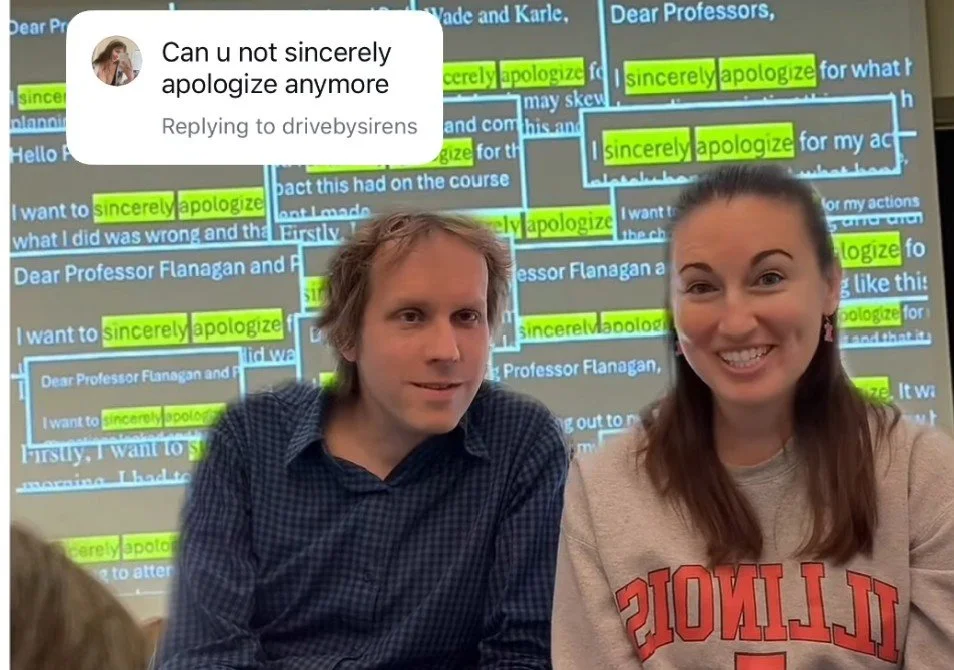Faculty Respond to Students’ AI-Generated Apology
Students at the University of Illinois Urbana-Champaign sent a similar AI-generated apology to their faculty. Let’s look at the communications about the situation, including the faculty members’ response.
Accused of cheating and falsifying their class attendance in their introductory data science class, dozens of students (faculty say about 80% of more than 100) wrote something similar, including “sincerely apologize.” The faculty showed a slide in class with the repeated phrase, and then the story spread. In a video on Instagram, the faculty describe the situation. It’s lighthearted, and students weren’t disciplined. A New York Times article explains a lack of AI policy—and, based on the faculty response, they seem unlikely to punish students, anyway.
I wish I found this story funnier, but I think it’s sad.
In the upcoming 12th edition of Business Communication and Character, I offer advice for working with AI in ways that reflect well on students’ character. I suggest, “Write important and sensitive messages in your own voice.” Later in the book, I offer suggestions for making a sincere apology. I know many business communication faculty teach these principles, which students either aren’t exposed to or may not put into practice.
An apology is not difficult to write if it is truly sincere. These examples aren’t. Why would students—just caught in a lie—suddenly be sorry? An apology requires self-reflection, which in turn, requires time.
Maybe what bothers me most is how little thought students seem to put into both the apology and the class. At the end of the NYT article, a recent graduate who found the first-year class useful is quoted:
You’re not even coming to the class, and then you can’t even send a sincere email to the professor saying, ‘I apologize’? Out of any class at the university, why skip that one?
I think the answer is, because they can. Business communication faculty I know have clearer expectations for their courses and for their students, including how they use AI. I also hope we expect an honest, personal apology. It’s not too late for these students to reflect on their behavior.

